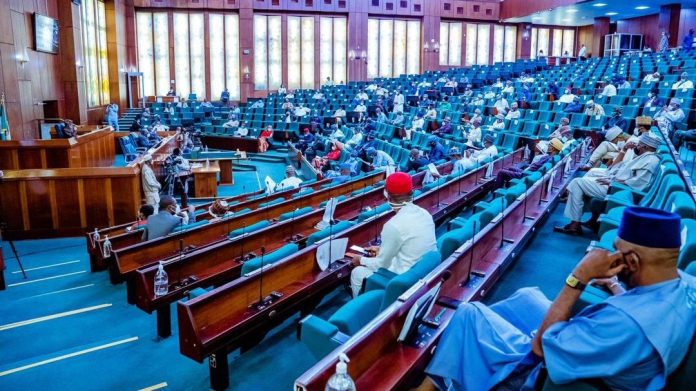The House of Representatives Joint Petroleum Committees on Midstream and Downstream sectors have commenced a thorough investigations into the alleged production/importation of adulterated/substandard petroleum products.
The committee is also investigating the non-availability of crude oil needed by domestic refineries, and broader threats to Nigeria’s energy security.
The Joint Investigative committees, chaired by Hon. Ikenga Imo Ugochinyere (Downstream) and Hon. Henry Okojie (Midstream), at the inaugural meeting, which was declared open by the Deputy Speaker, Rep Benjamin Kalu, on Monday, called on all stakeholders to provide comprehensive support, including essential information and documentation that will help with the investigations.
The Deputy Speaker, while performing the inauguration of the committee, charged stockholders to hold dearly the sacred principles of transparency, fairness, justice and professionalism in going about their mandate.
He charged the committee to consider only the interest of the Nigerian people in their Investigative activities, while warning them not to compromise the core values of the 10th House of Representatives.
The Chairman of Downstream, Ikenga Imo Ugochinyere, who heads the Joint Investigation and Chairman Midstream, Hon. Henry Okogie, in their speeches at the event, outlined the Committee strategy and confirmed that hearings and submissions from stakeholders had already begun.
They urged refinery operators, importers, producers, and marketers of petroleum products to share their complaints, suggestions, and independent facts.
They disclosed that the investigations would proceed in phases, starting with the investigation of allegations of local production and importation of substandard petroleum products, as well as the critical issue of crude oil non-availability to refineries and circumstances surrounding it. The committee revealed that it had identified 30 key items for investigation as directed by the House but will initially focus on two primary concerns.
He said “To ensure a thorough examination, the committee plans to: Conduct laboratory investigations at all local refineries, marketer and importer facilities, and regulatory agency labs such as the Nigerian Midstream and Downstream Petroleum Regulatory Authority (NMDPRA), Visit various filling stations of different marketers, importers’ depots, and other relevant sites to collect samples for analysis. “These samples will be examined in their labs, and also in alternative private independent labs to ascertain sulfur levels and other critical components. The committee will hire an internationally certified lab and where possible conduct live testing of all imported and locally produced products to help resolve the issues. The results of such testing on all imported and produced petroleum products, will be announced publicly.
“The committee affirmed that apart from finding a final solution to the alleged embarrassing issue of non-availability of crude supply to domestic refiners both modular and big refiners, the findings will stretch to crude produced and the quantity that ought to go to local refiners and the reasons for falling short, the impact of crude forward sales on availability of crude to domestic refiners and other issues.” The lawmakers said that letters of invitation for paper submissions and appearances have been dispatched to key stakeholders, including the Minister for Petroleum (Oil), the management of NNPCL, the GCEO MeleKyari, Executive Vice President Downstream, and Authority Chief Executive of NMDPRA, Operations Officers, and their lab heads or testing partners.
Others include IPMAN, PETROAN, NUPRC CEO, independent oil producers, international oil companies (IOCs), importers, marketers, and depot owners.
The Chairman of the Committee also emphasized that the investigation aims to identify and resolve the underlying issues plaguing Nigeria’s petroleum sector, the lawmakers urged relevant stakeholders to deviate from any attack on media pending conclusion of investigation.


